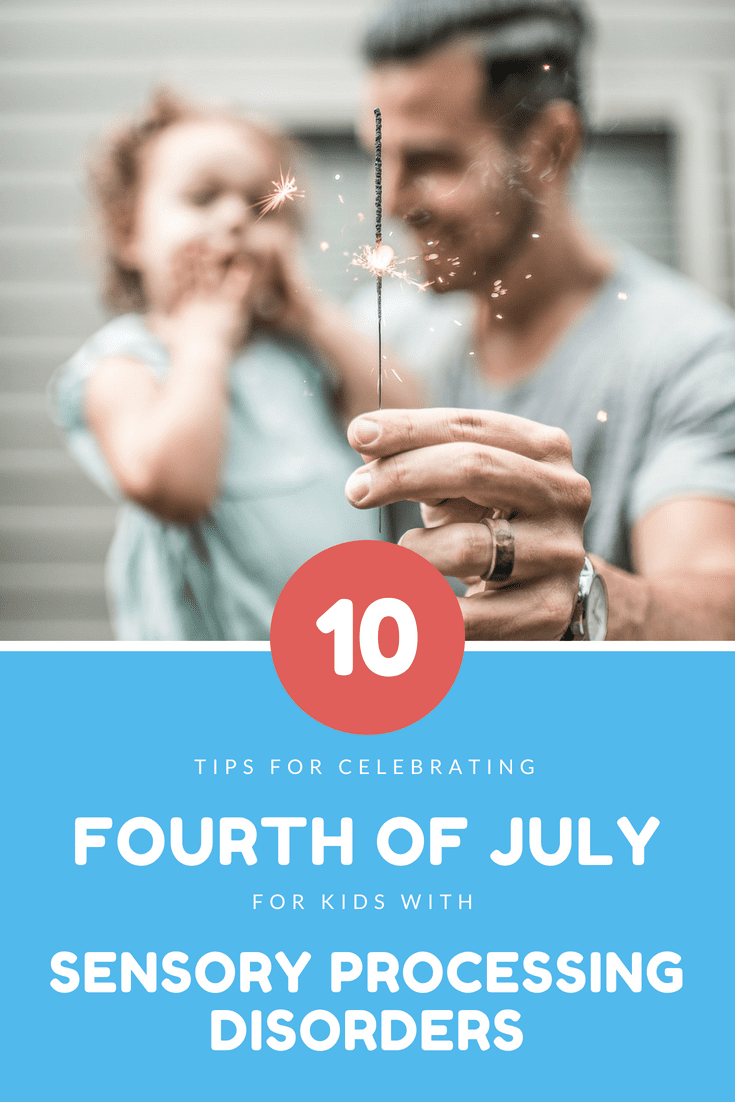Independence Day can be an exciting holiday for children of all ages and abilities. Firework shows, parades, barbecues, festivals, and many other fun activities can create an action-packed celebration. But for children with sensory processing disorders, the commotion can be more upsetting than entertaining. To prepare for the 4th of July with your child, we’ve compiled a few sensory-friendly tips.
1. Bring a Safe Space
Children with sensory needs may feel overwhelmed by the commotion of 4th of July festivities. They may want to retreat to a safe space, or an area with minimal sensory stimuli. It can be hard to provide this during a party or event, but something as simple as a blanket, tent, or umbrella can serve as a portable safe space.
2. Engage with your Child
Oftentimes when a child is in a new environment, you are their best comfort. Engaging with them and putting their needs first is the best way to help them enjoy an event or activity outside of their comfort zone.
3. Communicate Needs
Let your child know that they can always tell you how they are feeling. Children who are verbal should be encouraged to tell you when it’s time to go. For children who prefer visual communication, you may want to bring cards or pictures that indicate the child is having fun or the child is ready to go home.
4. Bring Tools for the Unexpected Things
To prepare for unexpected stimuli, triggers, or events at a party, you may bring tools such as noise-blocking headphones, sunglasses, fidget toys, and more.
5. Ask Them For Help
Some kids with special sensory needs enjoy work activities, like lifting or transporting objects. If your child enjoys this, you can ask them if they’d like to help with setting up or helping out during the celebration. This may include setting up chairs to view fireworks or carrying the blanket to the beach. These types of tasks can cater to a sensory need and bring them joy in making a contribution.
6. Prepare Them for the Celebration
Often children with sensory processing difficulties or disabilities thrive when they know exactly what to expect. They may need to have the event or activity explained to them in great detail or require a social story or visual aid to know what to expect. You may want to show them a video of a fireworks display, a crowded celebration, or a parade beforehand. Some children do also struggle with too much anticipation, so if that is the case you may feel you need to provide information in a more brief or succinct way. You know your child’s needs best!
7. Be Flexible
All children have limitations on how long they want to spend at an event or in a crowded area. Know your child’s limitations and be ready to change the plans if necessary.
8. Familiar Activities
Include familiar elements by bringing a toy they already know well or planning an activity you know they look forward to.
9. Safety First
Crowds always pose a risk for children, so be sure to stick together and have a plan in place for finding one another. When it comes to fireworks, always practice fire safety! You can find more tips on staying safe for all children this Fourth of July here.
10. Find An Alternative
It’s possible that fireworks and parades are just completely off the table for your child with sensory difficulties. And that’s totally okay! Here are a list of popular alternates:
- Host a family party
- Hold a Red-White-and-Blue dress-up contest
- Have a Water balloon fight
- Take a beach trip
- Host a Fourth of the July themed neighborhood bake-off
- Have a family Fourth of July movie marathon
Sensory-Friendly Independence Day Activities:
- Red, White, and Blue Water Sensory Bin
- Frozen Stars Melting Baking Soda Science Summer Activity
- Watermelon Volcano Science Activity
- DIY 4th of July Flashlights
- Fireworks Marble Painting Craft
Related Reading:
Sources:
- Parents: Sensory Play Ideas for Your Toddler or Preschooler
- Friendship Circle: 6 Tips to Having a Sensory Friendly 4th of July
